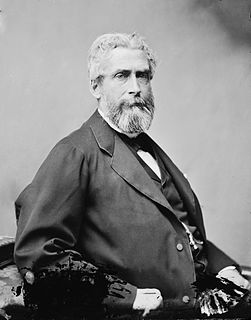A Quote by John Lothrop Motley
History shows how feeble are barriers of paper.
Related Quotes
Luckily for me, most of my work is through a brand or client who approaches my agent. Before I began modeling, I never realized how many barriers there were for people with disabilities within the industry. I didn't realize how much prejudice and ignorance existed. That made me even more determined to break down the barriers and to wake up the industry to the fact that beauty shows up in all different shapes, sizes and abilities.
A Christ upon paper, though it were the sacred pages of the Gospel, would have been as powerless to save Christendom as a Christ in fresco; not less feeble than the Countenance which, in the last stages of its decay, may be traced on the wall of the Refectory at Milan. A living Christ is the key to the phenomenon of Christian history.
Chroniclers of the role of paper in history are given to extravagant pronouncements: Architecture would not have been possible without paper. Without paper, there would have been no Renaissance. If there had been no paper, the Industrial Revolution would not have been possible. None of these statements is true.
In some ways, what 'Hamilton' has done for Broadway shows - what it has done for the interpretation of history and how it fused all these worlds together into this modern, contemporary, hip-hop field, and delivered it in such an incredible way - we were inspired to do a similar thing for ballroom dancing and for dance shows in general.
The freedom of an individual depends upon that individual's freedom to alter his considerations of space, energy, time and life and his roles in it. If he cannot change his mind about these, he is then fixed and enslaved amidst barriers such as those of the physical universe, and barriers of his own creation. Man thus is seen to be enslaved by barriers of his own creation. He creates these barriers himself, or by agreeing with things which hold these barriers to be actual.
Experience, however, shows that neither a state nor a bank ever have [sic] had the unrestricted power of issuing paper money without abusing that power; in all states, therefore, the issue of paper money ought to be under some check and control; and none seems so proper for that purpose as that of subjecting the issuers of paper money to the obligation of paying their notes either in gold coin or bullion.
The writer learns to write, in the last resort, only by writing. He must get words onto paper even if he is dissatisfied with them. A young writer must cross many psychological barriers to acquire confidence in his capacity to produce good work-especially his first full-length book-and he cannot do this by staring at a piece of blank paper, searching for the perfect sentence.







































